Windows 10 Installation Guide
Windows 10 64-bit is the most powerful version of Microsoft's operating system, capable of utilizing all installed RAM (more than 4GB) and offering enhanced security and performance. This version is ideal for modern hardware and users who need to maximize their system's performance.
Windows 10 will reach the end of support on October 14, 2025. The 64-bit version offers significant advantages such as enhanced security (DEP, ASLR), support for more RAM (up to 2TB in Pro), and better performance in modern applications. Make sure your processor supports 64-bit before installing.
System Requirements for Windows 10
- Processor: 1 GHz or faster CPU, compatible with PAE, NX, SSE2, and CMPXCHG16b (x64 architecture)
- RAM: 2 GB (4 GB recommended for better performance)
- Disk space: 32 GB or more (20 GB for 32-bit)
- Graphics: DirectX 9 graphics device or later with WDDM 1.0 driver
- Display: Minimum resolution of 800×600 (recommended 1024×768 or higher)
- Installation media: 8GB or larger USB drive, or DVD
- UEFI: Recommended (with optional Secure Boot)
- TPM: Version 2.0 for future major updates
Follow these 40 detailed steps to install Windows 10 (64-bit) on your computer. The 64-bit installation is similar to the 32-bit version but with enhanced capabilities. Each step includes a reference image that you can enlarge by clicking on it.
Select OS Preferences
Choose your preferred language, time format, currency, and keyboard or input method. In this case, we will select Spanish.
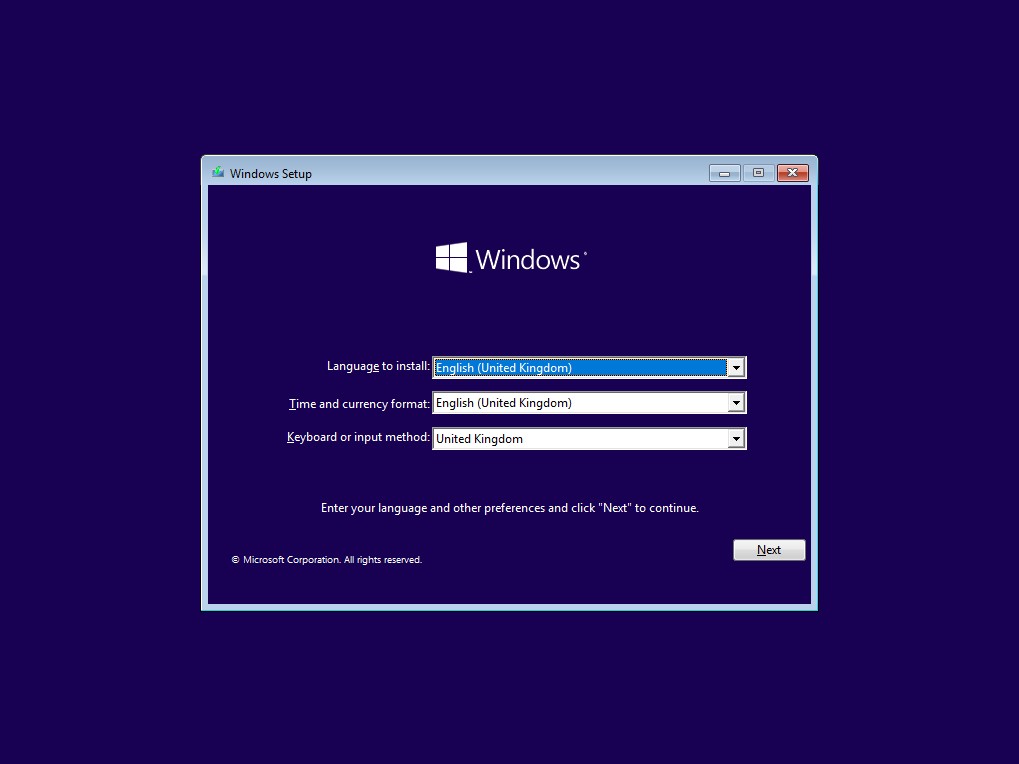
Click the image to enlarge
Start the Installation Process
Click the "Install Now" button to begin the installation process.
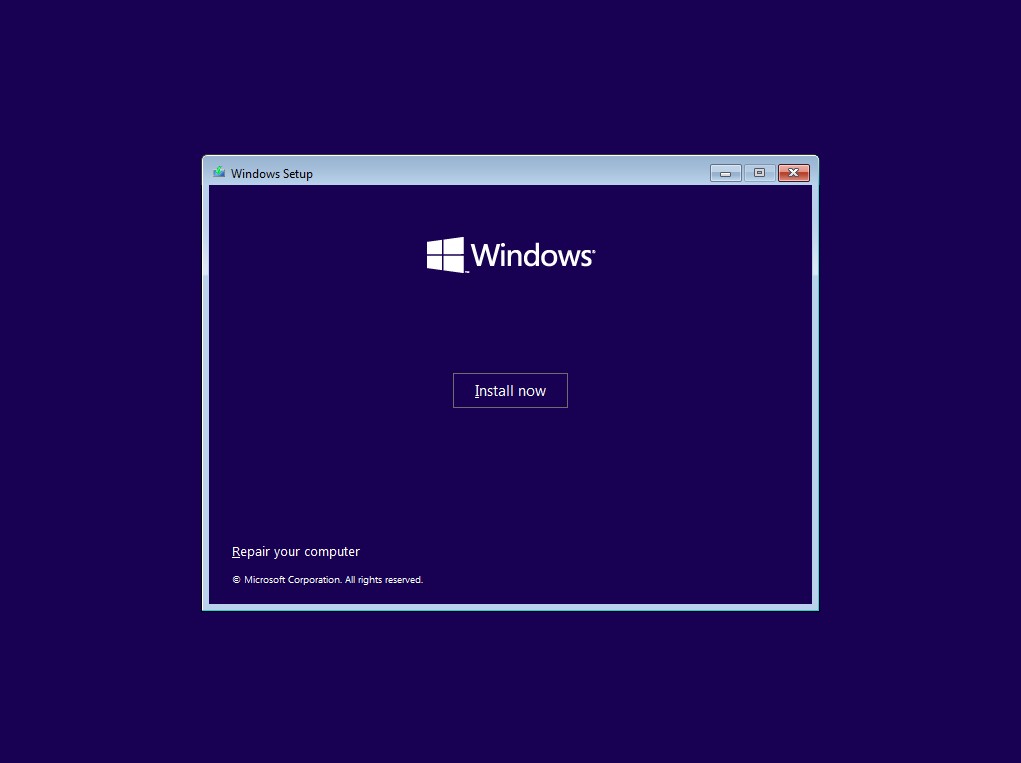
Enter Product Key
Enter your Windows 10 product key if you have one. If not, you can use one of these generic keys (for installation only, they do not activate the system):
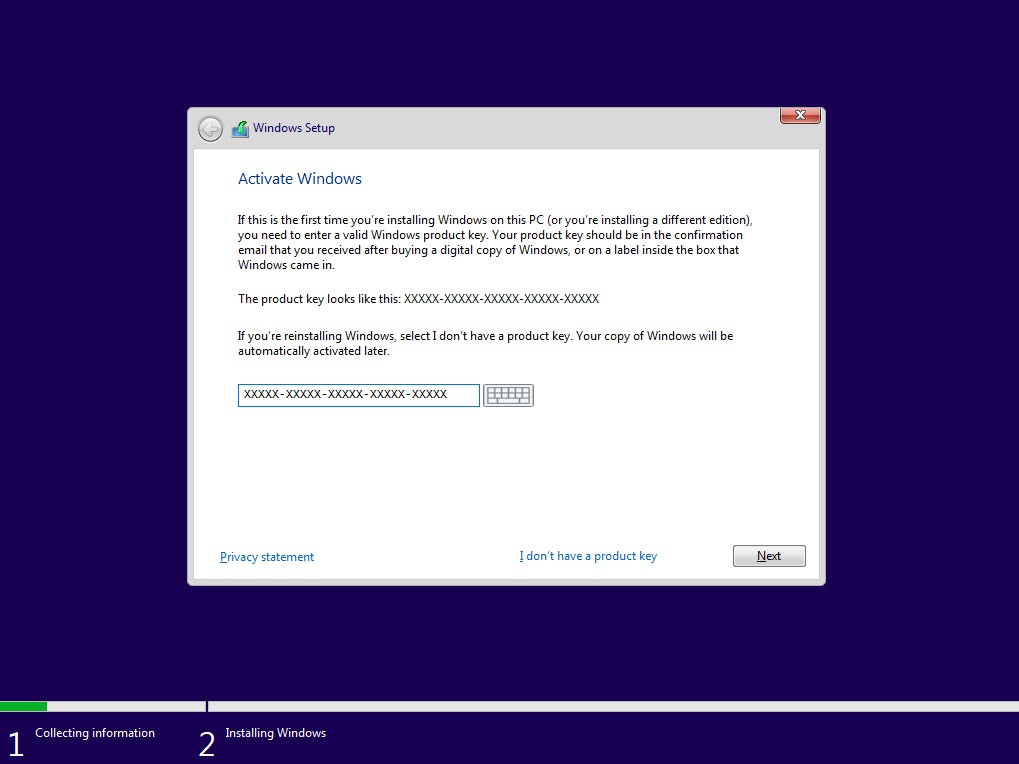
Select Windows 10 64-bit Edition
Select the edition of Windows 10 you want to install (Home, Pro, etc.). Make sure to choose the 64-bit version (x64). Click "Next".
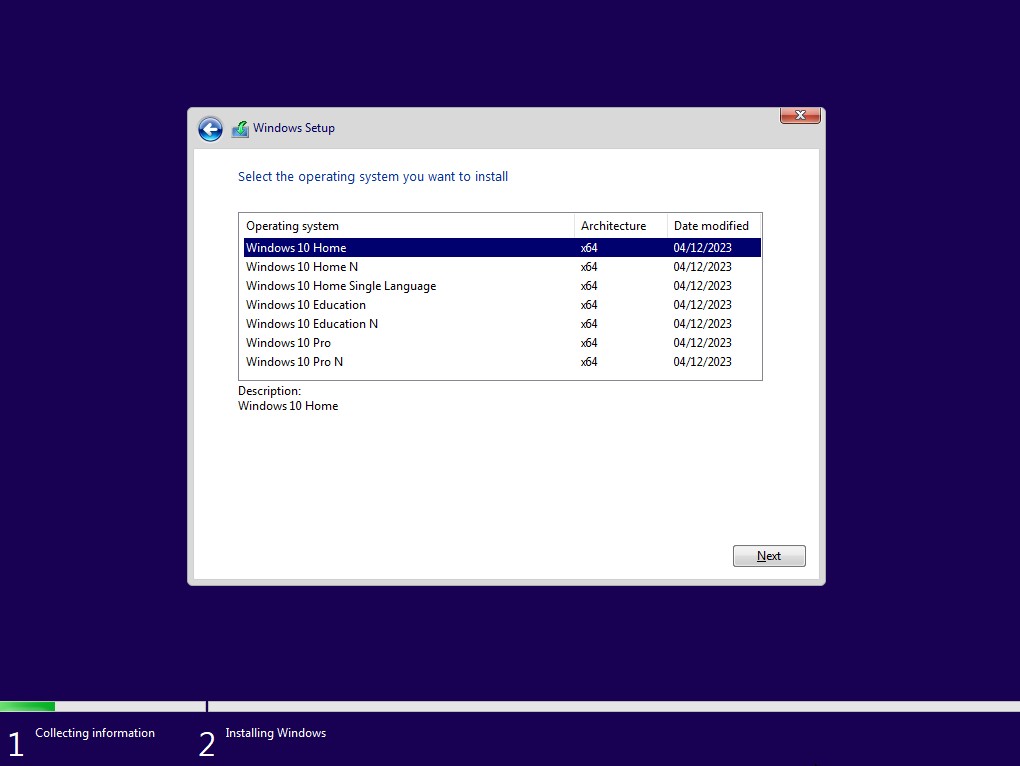
Accept License Terms
Read and accept the license terms by checking the corresponding box. Click "Next" to continue.
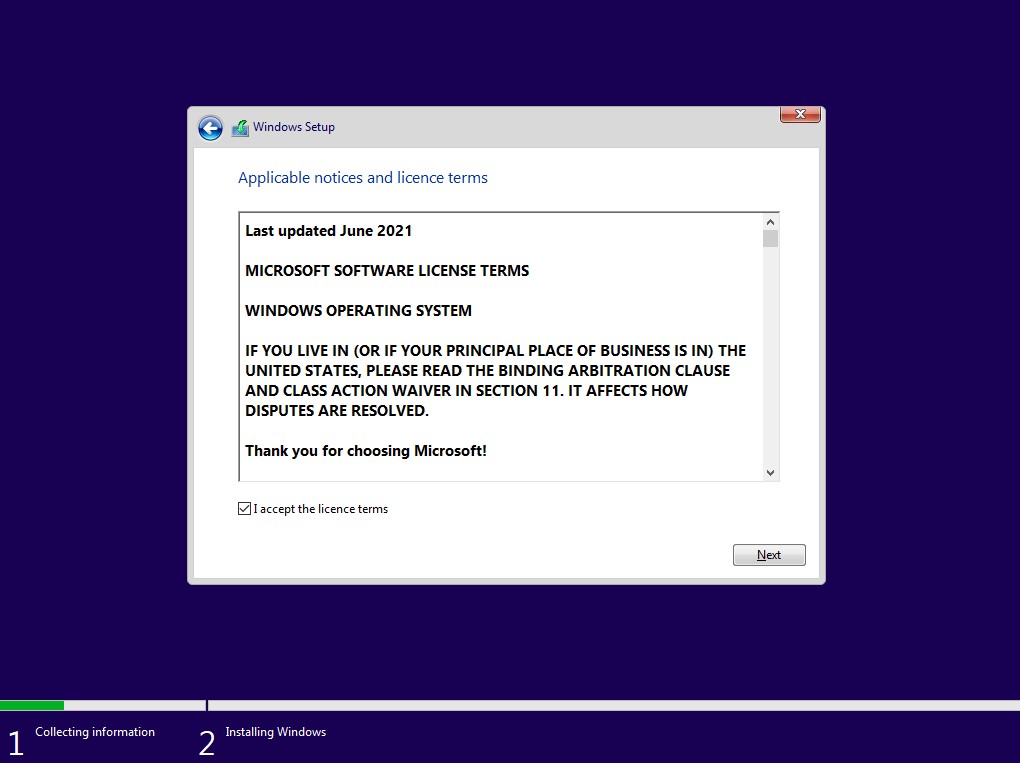
Installation Type
Select "Custom: Install Windows only (advanced)" for a clean installation. This option is recommended for the 64-bit version.
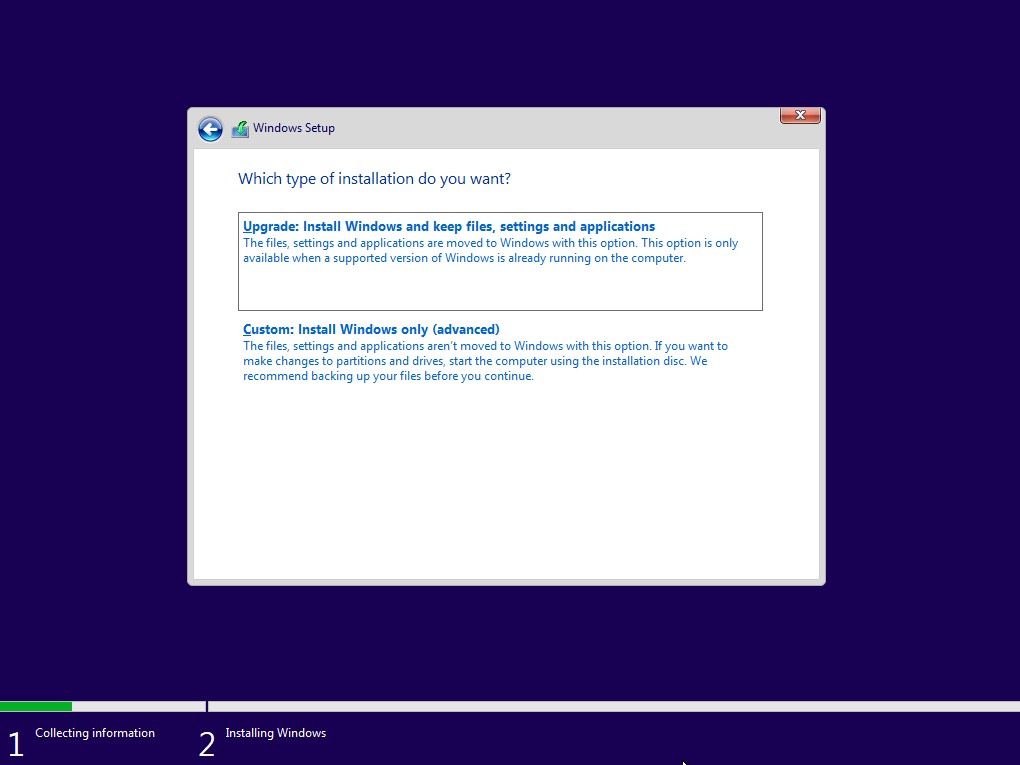
Confirm Partition for Installation
Select the partition you created (usually the largest one) and click "Next" to start the installation.
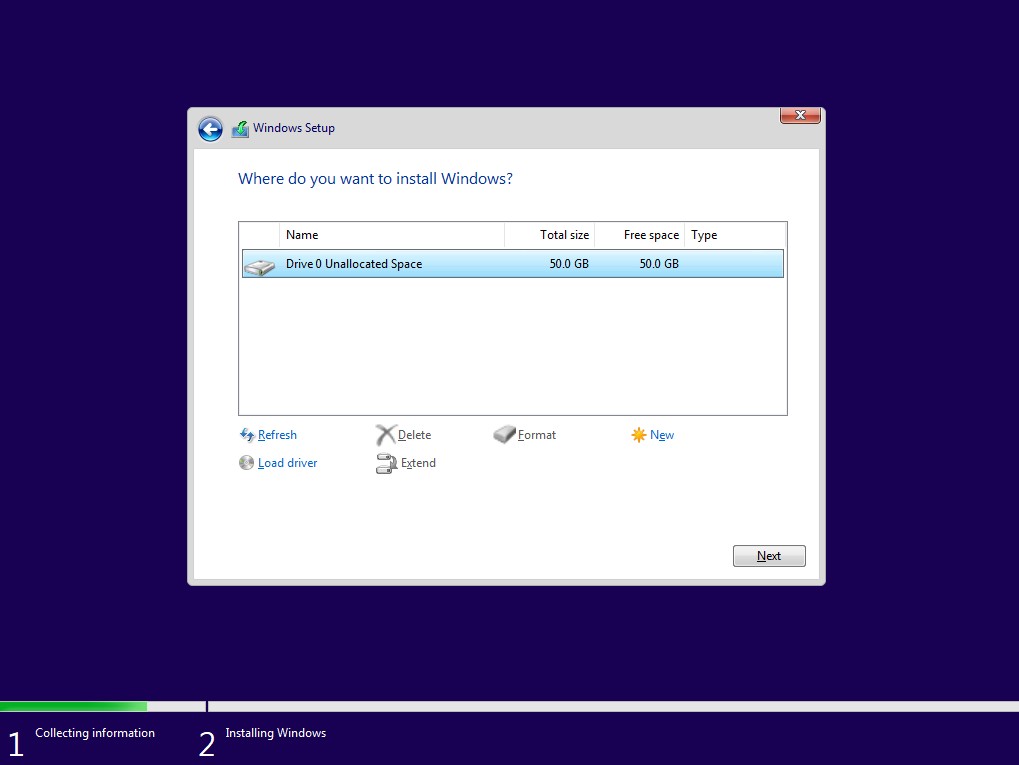
Start of Installation
Windows will begin copying the version files. This process may take several minutes.
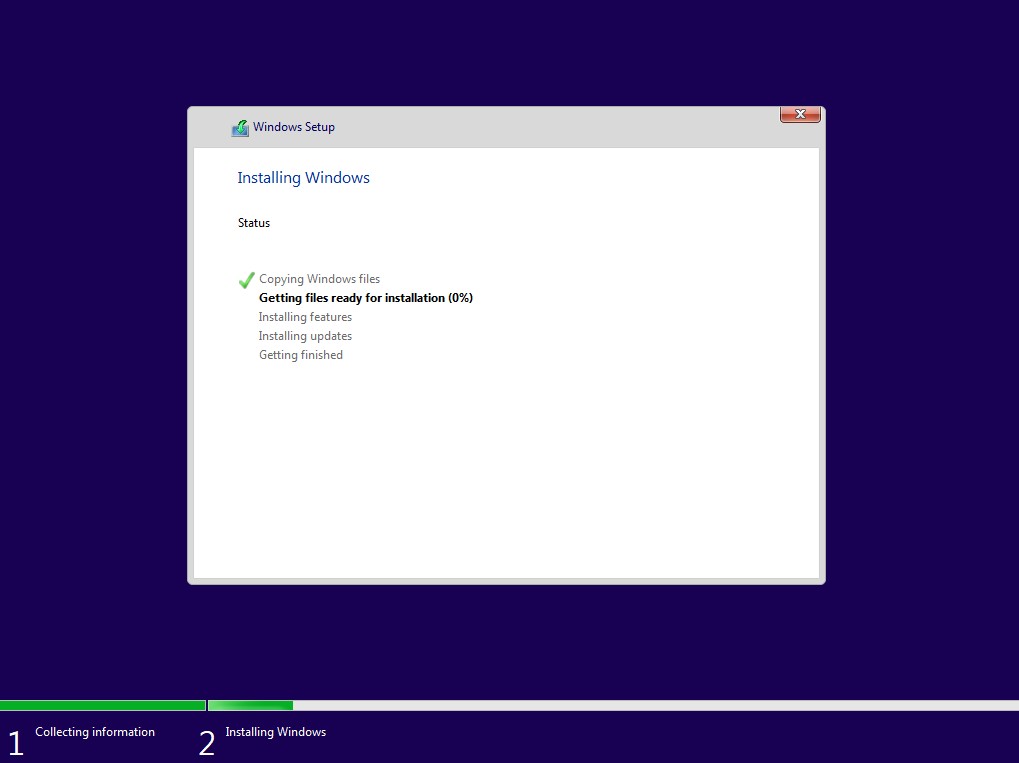
Start of Installation
Windows will begin copying the version files. This process may take several minutes.
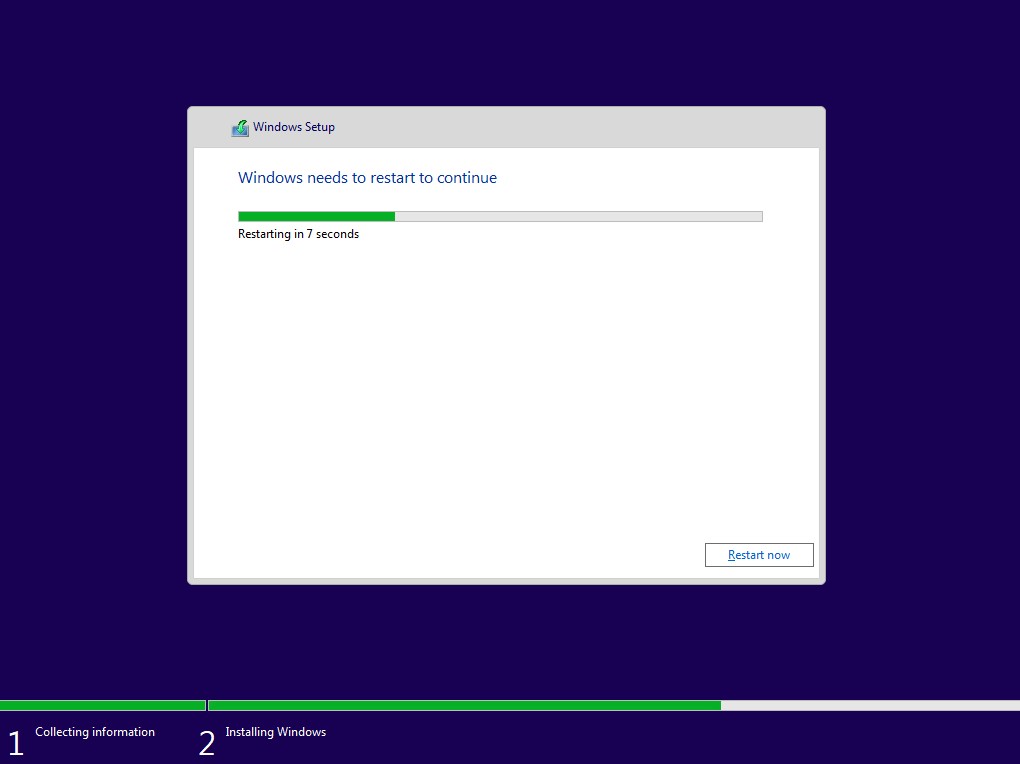
First Restart
The system will automatically restart during the process. Do not press any key to allow it to boot from the hard drive.
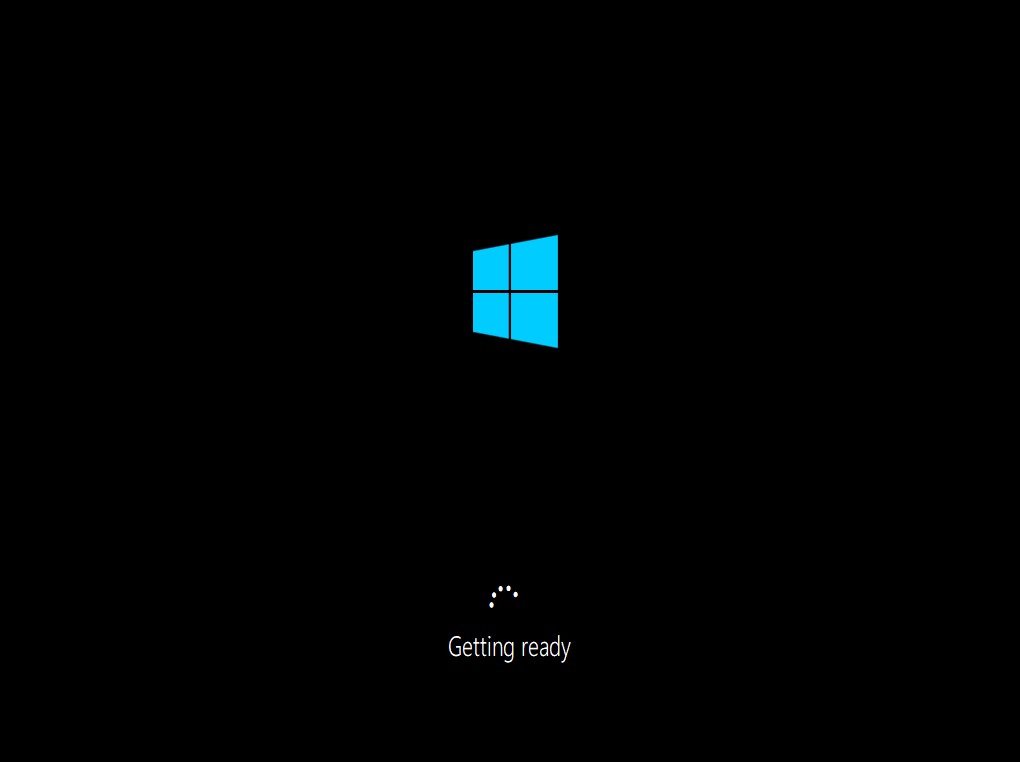
Preparing Devices
Windows 10 will detect and install drivers for your hardware. You will see the message "Preparing devices".
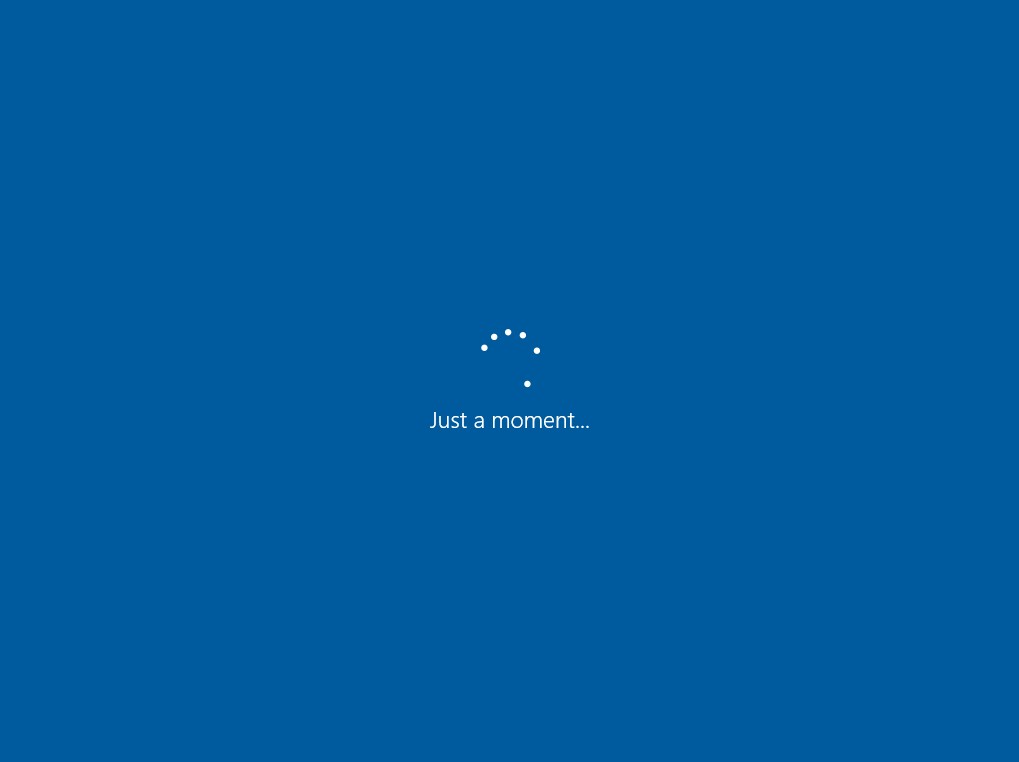
Regional Settings
Select your country or region. Click "Yes" to continue.
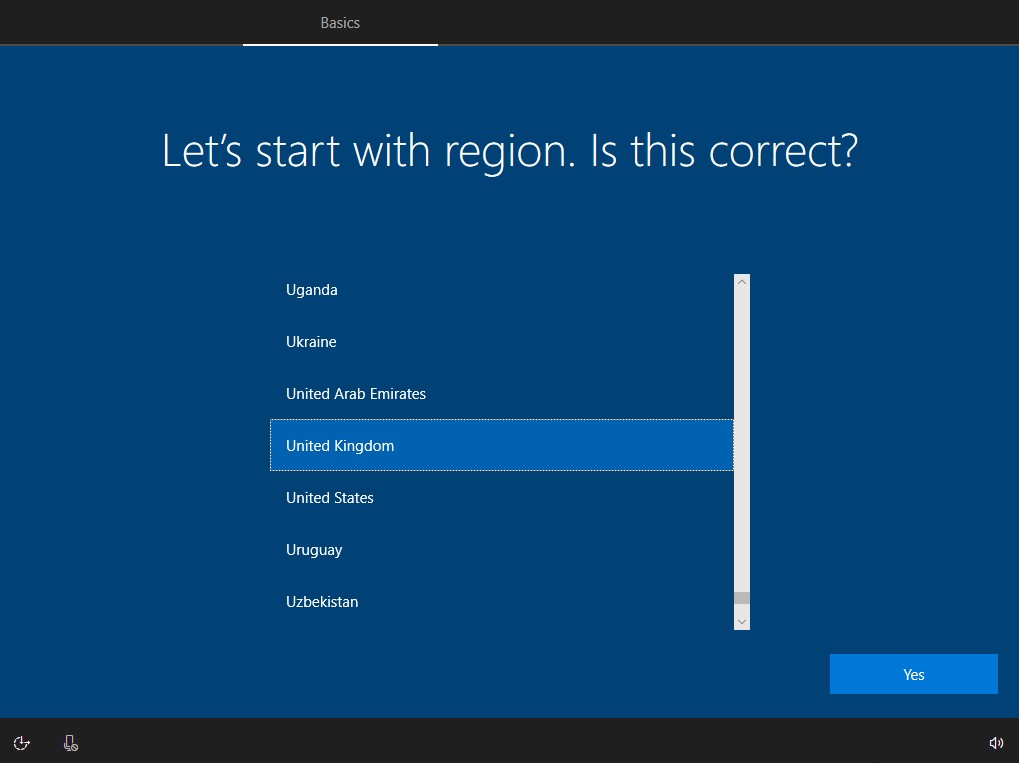
Keyboard Layout
Select the keyboard layout you prefer. Click "Yes" to confirm.
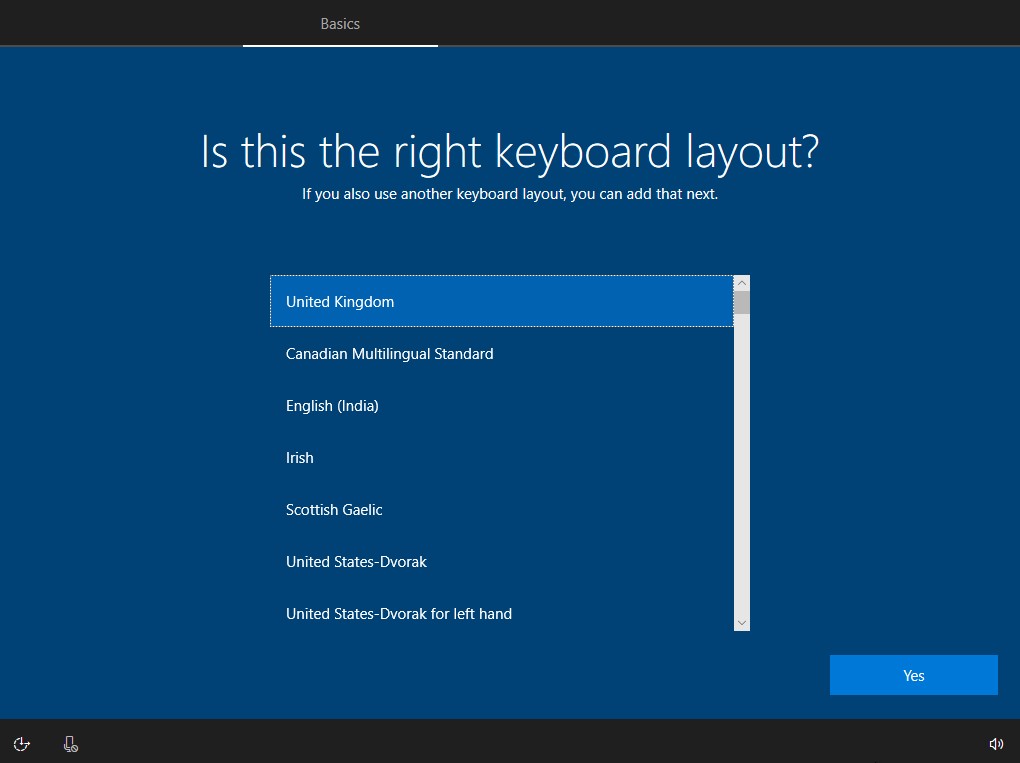
Add a Second Keyboard Layout
If desired, add a second keyboard layout. You can skip this step by clicking "Skip".
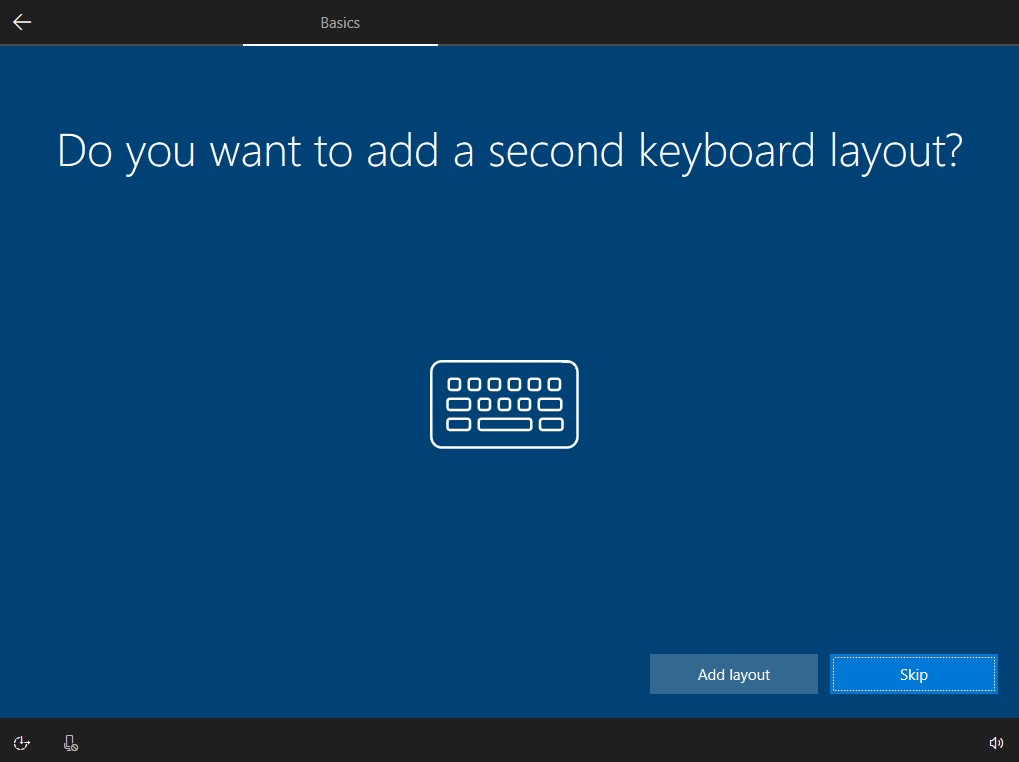
Connect to a Network
Select your Wi-Fi network or connect an Ethernet cable. The 64-bit version may require more updates, so an internet connection is recommended.
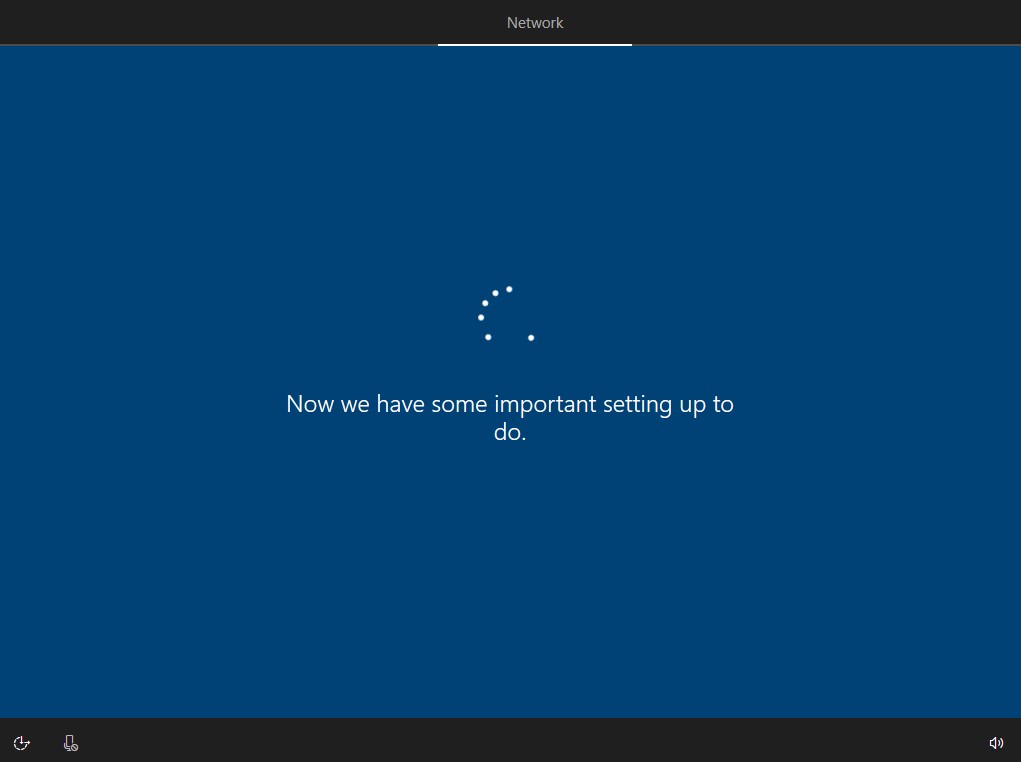
Add a Microsoft Account
Enter your Microsoft account (such as @outlook.com or @hotmail.com) and password.
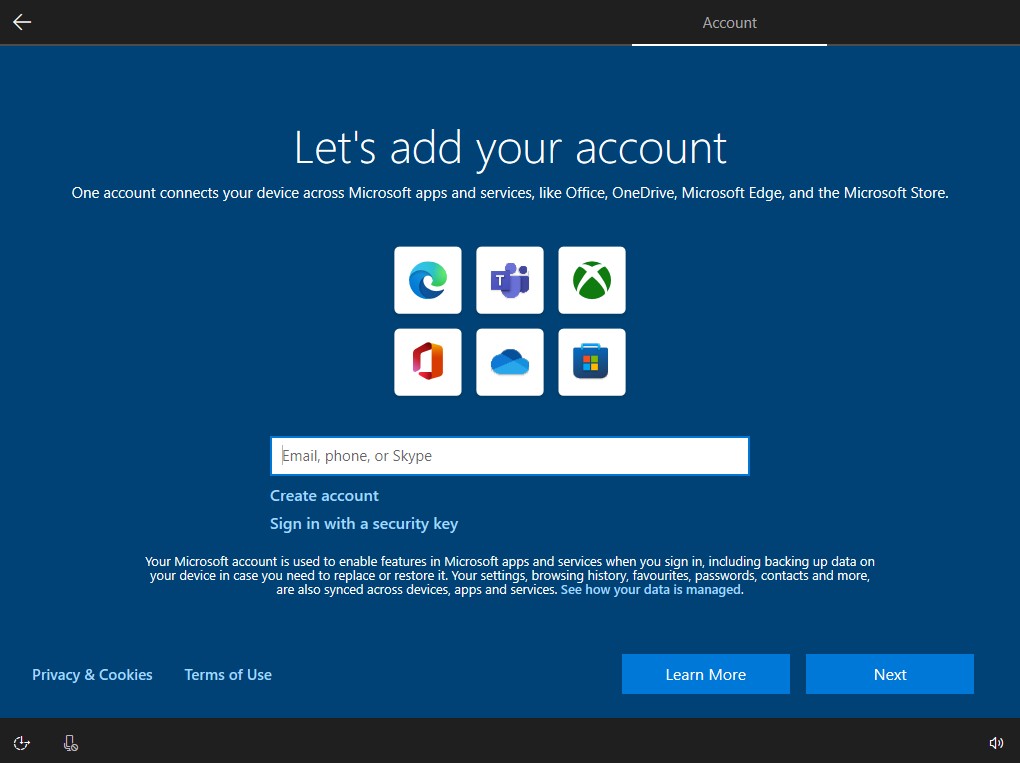
Enter a Microsoft Account
Enter the password for your Microsoft account.
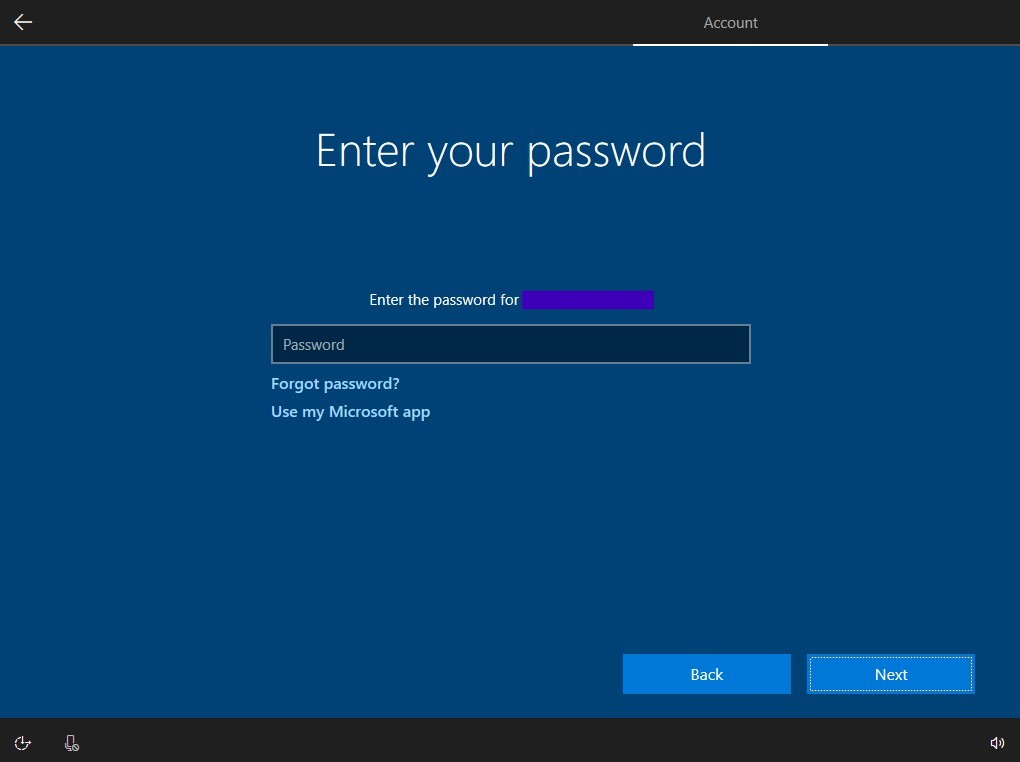
Account Security
We will create a PIN for logging into our account, click on "Create PIN"
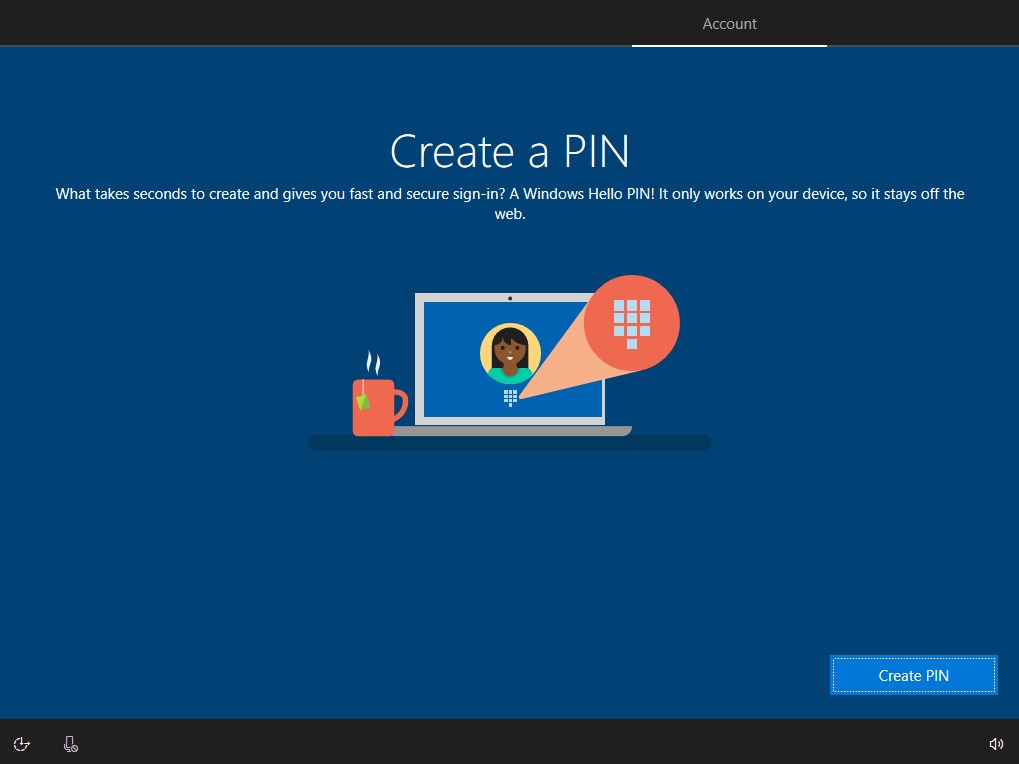
PIN Setup
Create a secure password or PIN.
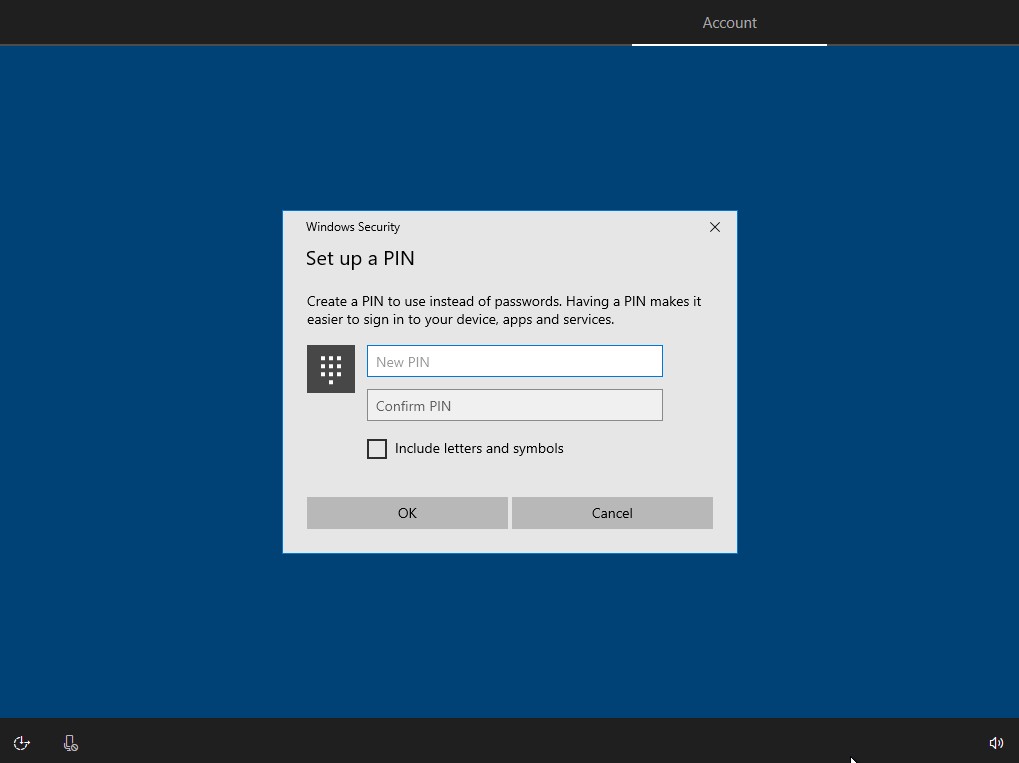
Privacy and Service Settings
Carefully review the privacy and service options. Turn off the ones you don't want.
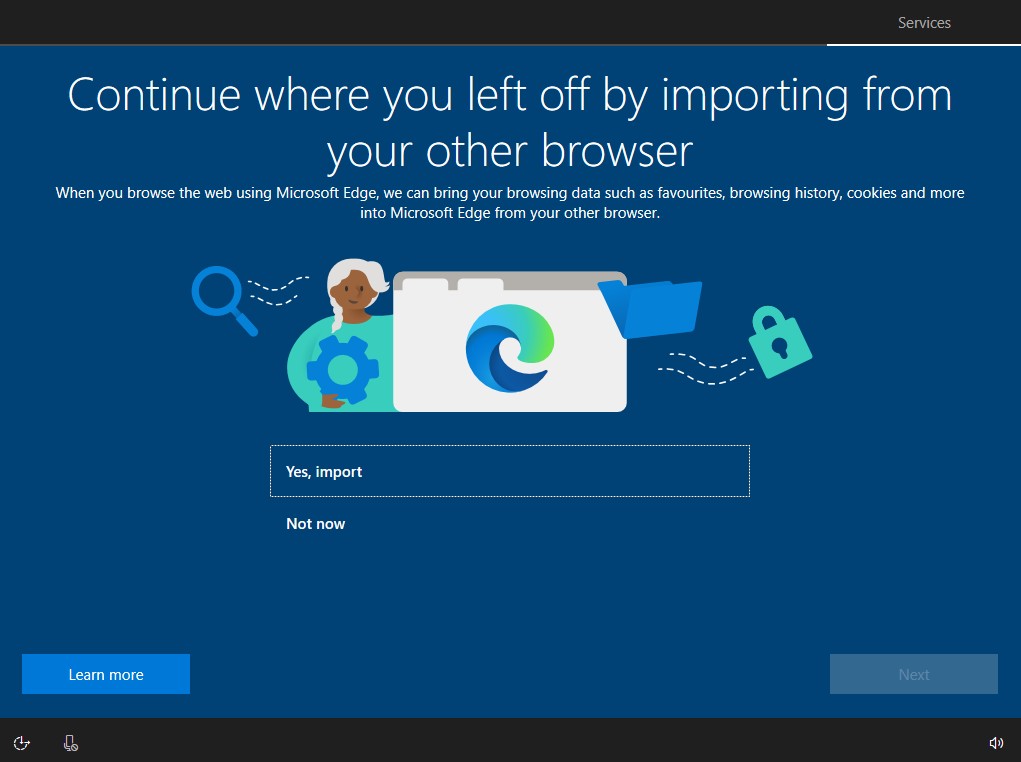
Privacy and Service Settings
Carefully review the privacy and service options. Turn off the ones you don't want.
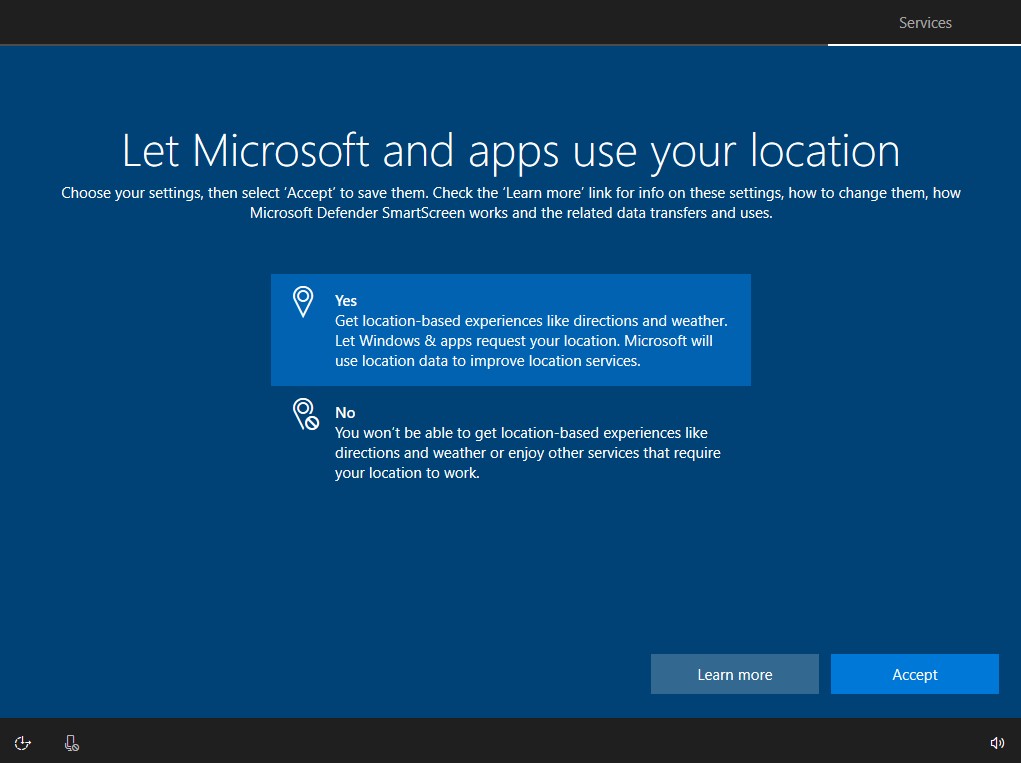
Privacy and Service Settings
Carefully review the privacy and service options. Turn off the ones you don't want.
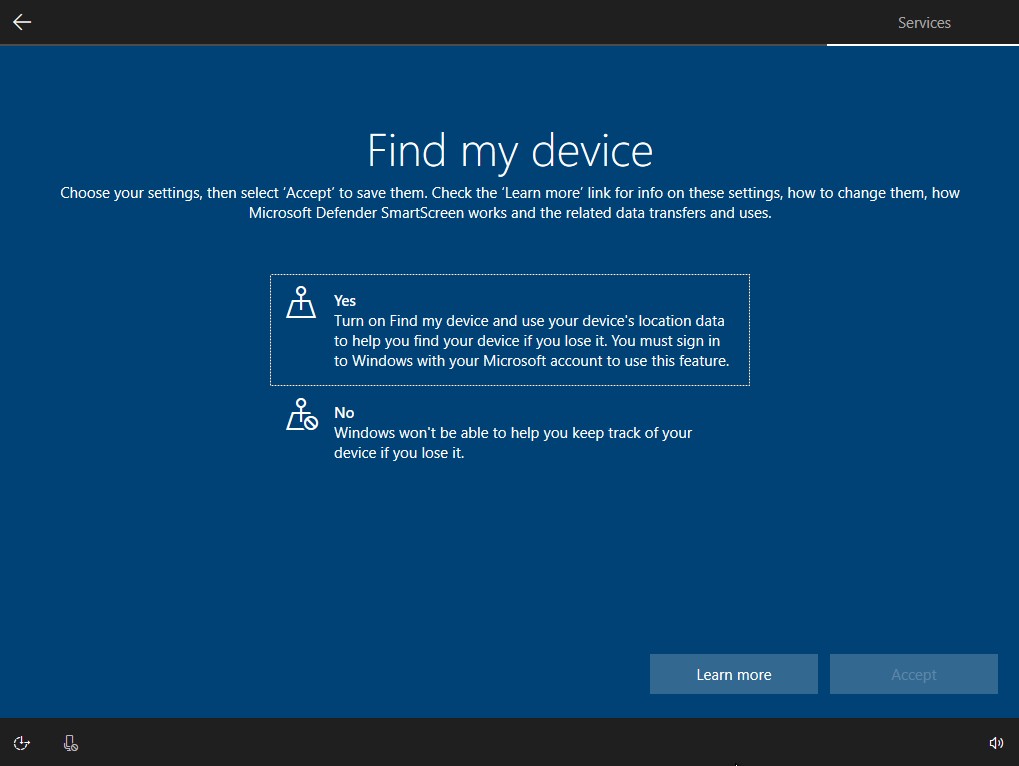
Privacy and Service Settings
Carefully review the privacy and service options. Turn off the ones you don't want.
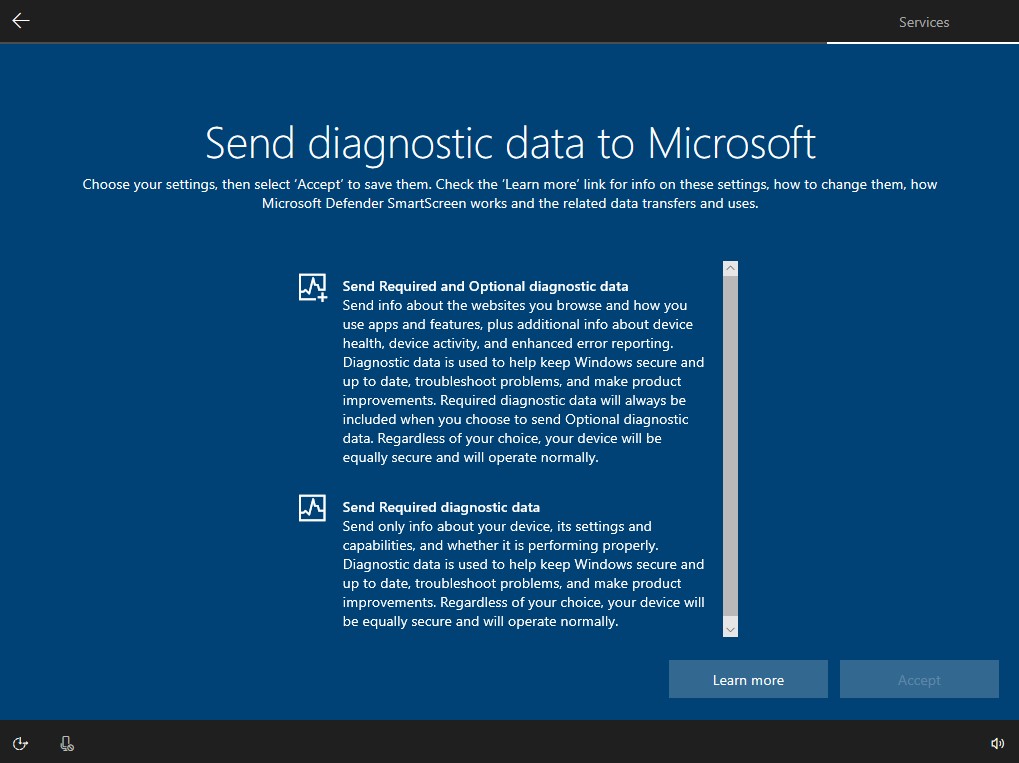
Privacy and Service Settings
Carefully review the privacy and service options. Turn off the ones you don't want.

Privacy and Service Settings
Carefully review the privacy and service options. Turn off the ones you don't want.

Privacy and Service Settings
Carefully review the privacy and service options. Turn off the ones you don't want.
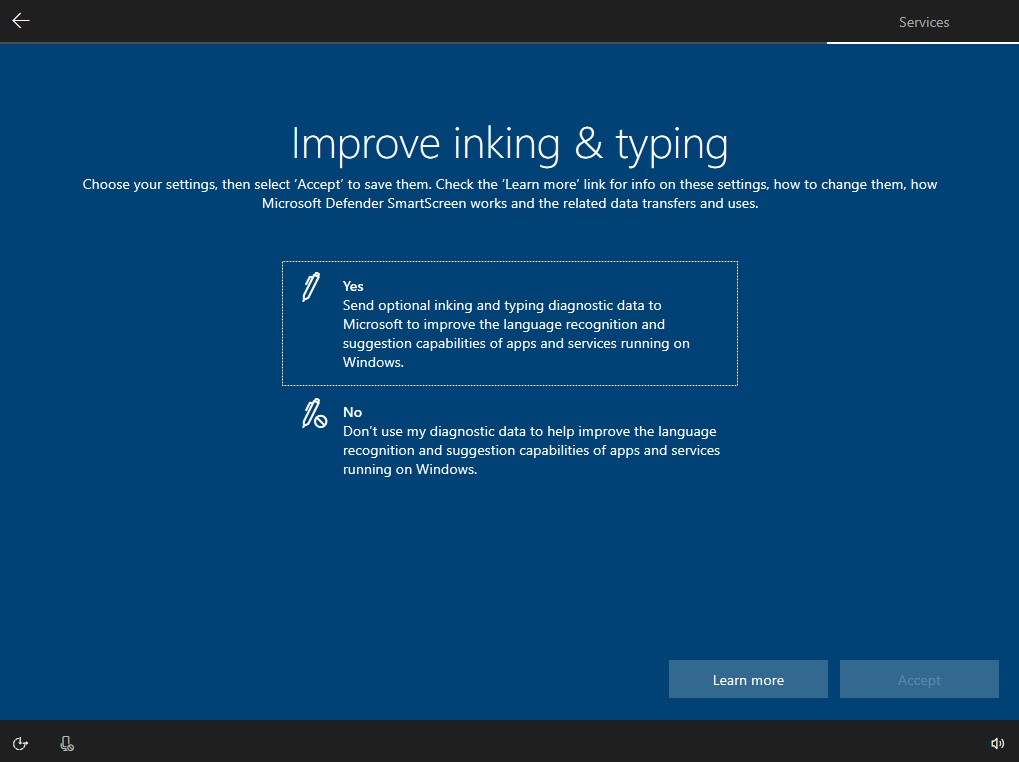
Privacy and Service Settings
Carefully review the privacy and service options. Turn off the ones you don't want.
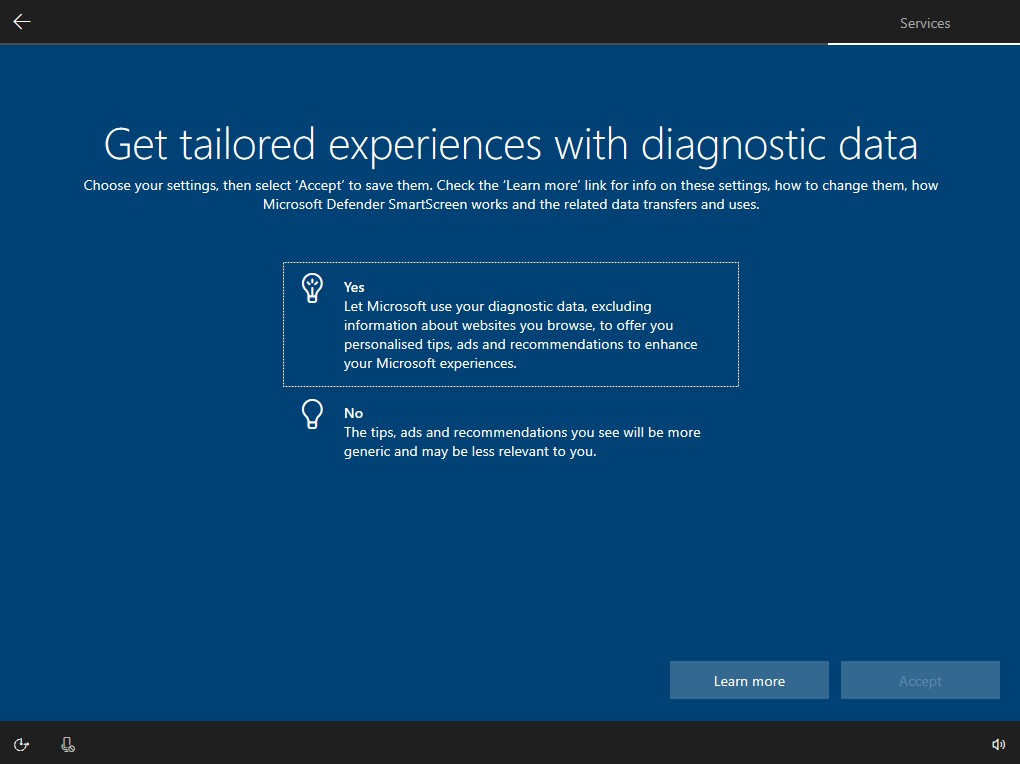
Privacy and Service Settings
Carefully review the privacy and service options. Turn off the ones you don't want.
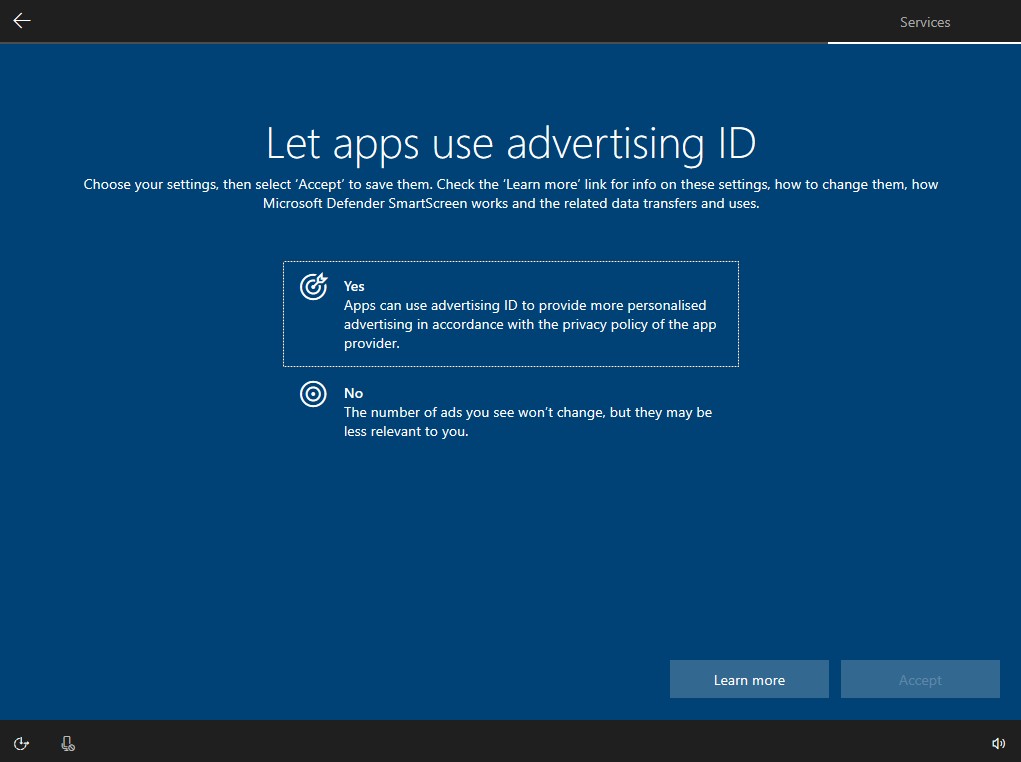
Privacy and Service Settings
Carefully review the privacy and service options. Turn off the ones you don't want.
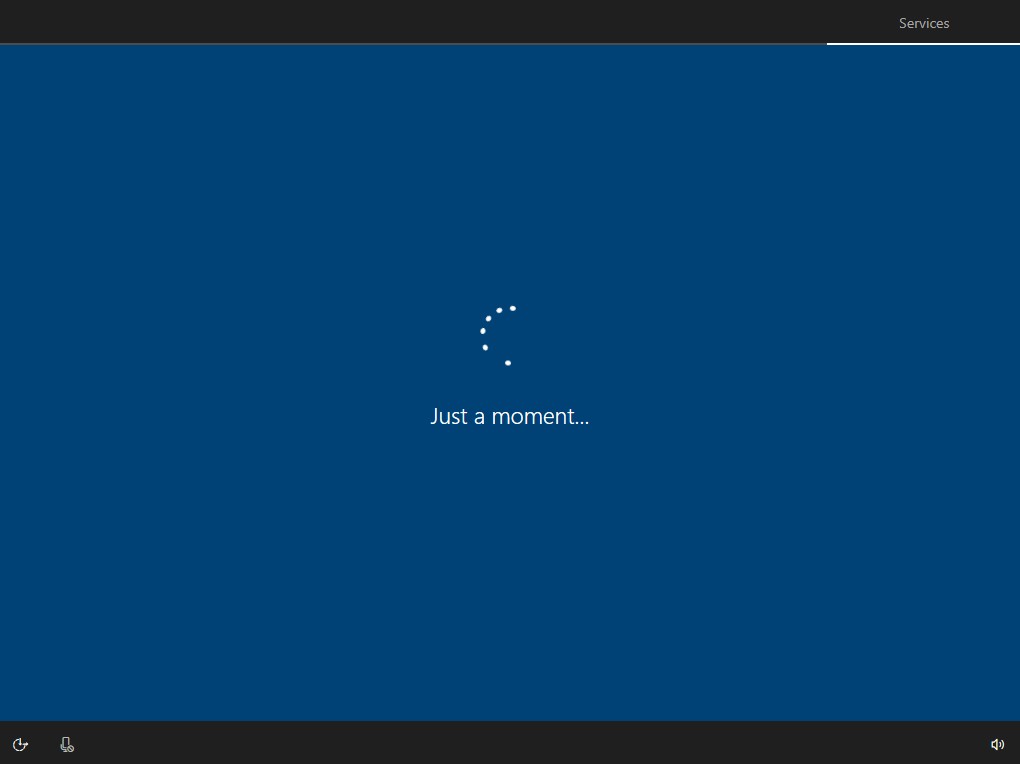
Privacy and Service Settings
Carefully review the privacy and service options. Turn off the ones you don't want.
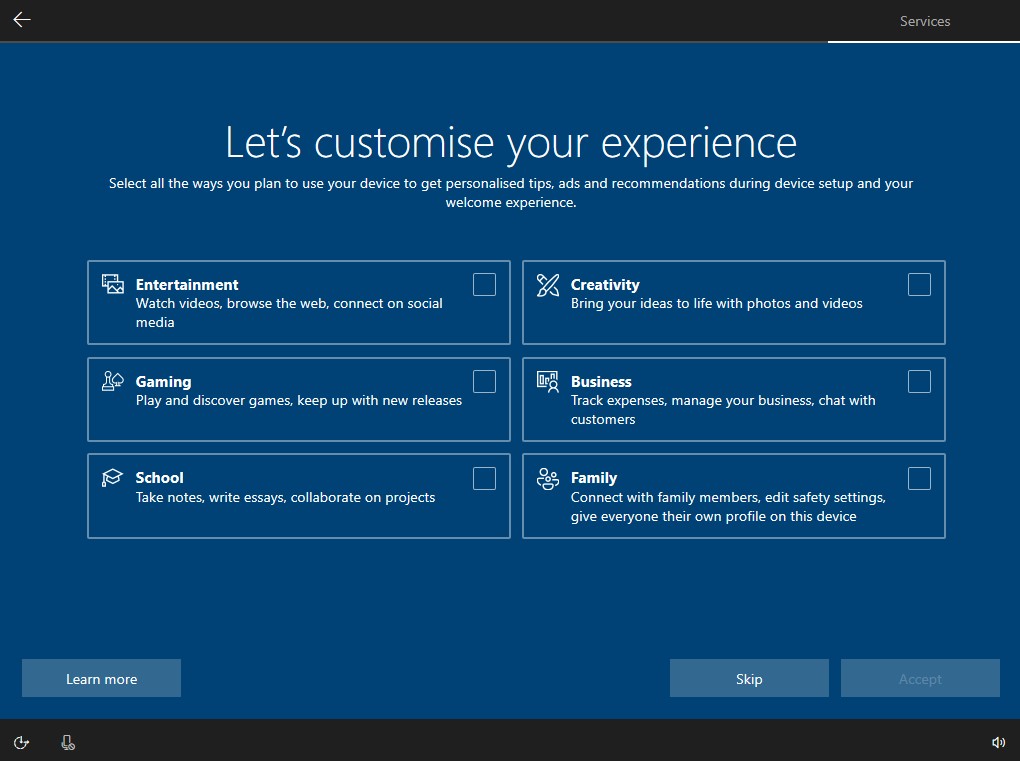
Privacy and Service Settings
Carefully review the privacy and service options. Turn off the ones you don't want.
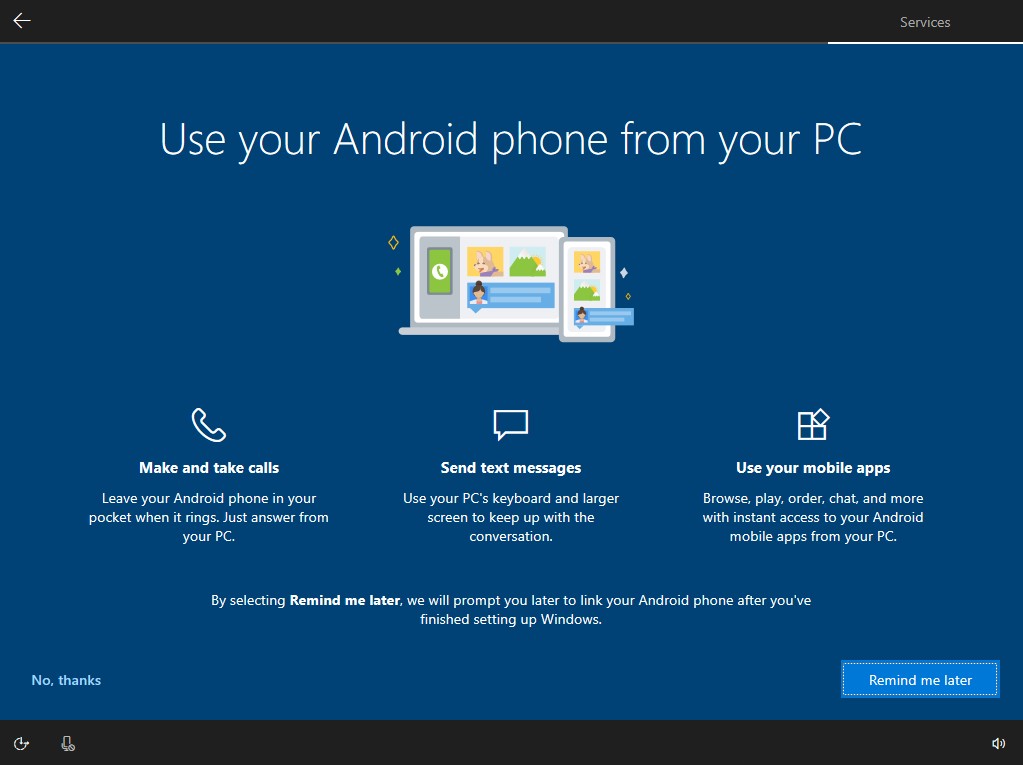
Privacy and Service Settings
Carefully review the privacy and service options. Turn off the ones you don't want.
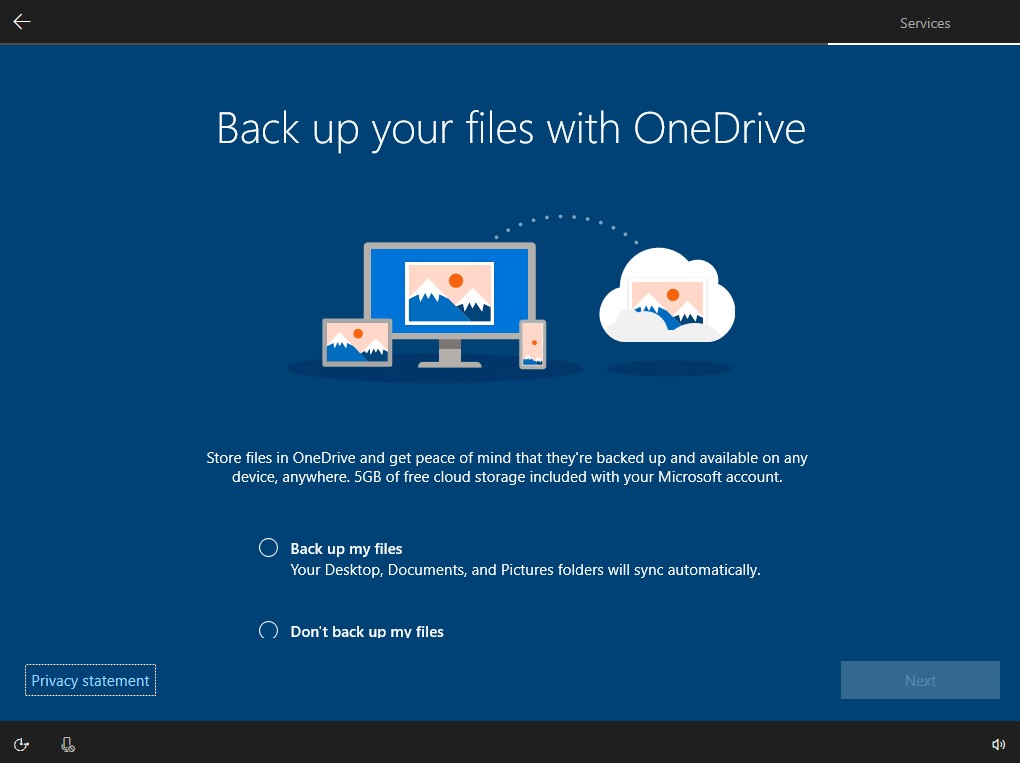
Privacy and Service Settings
Carefully review the privacy and service options. Turn off the ones you don't want.
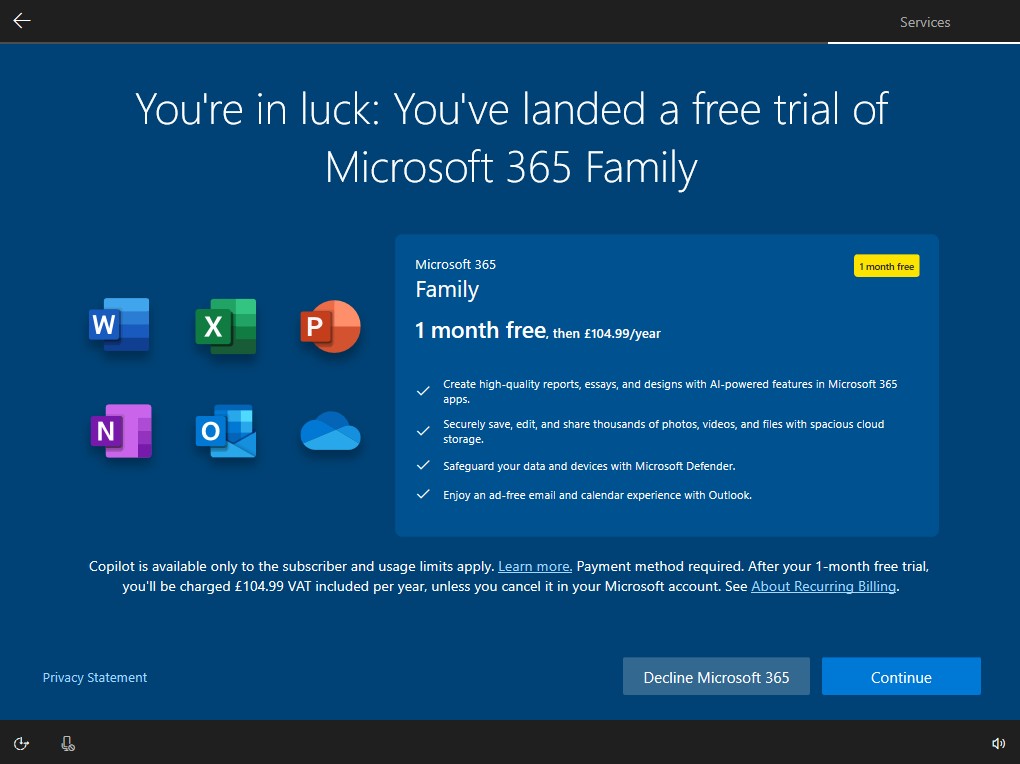
Privacy and Service Settings
Carefully review the privacy and service options. Turn off the ones you don't want.
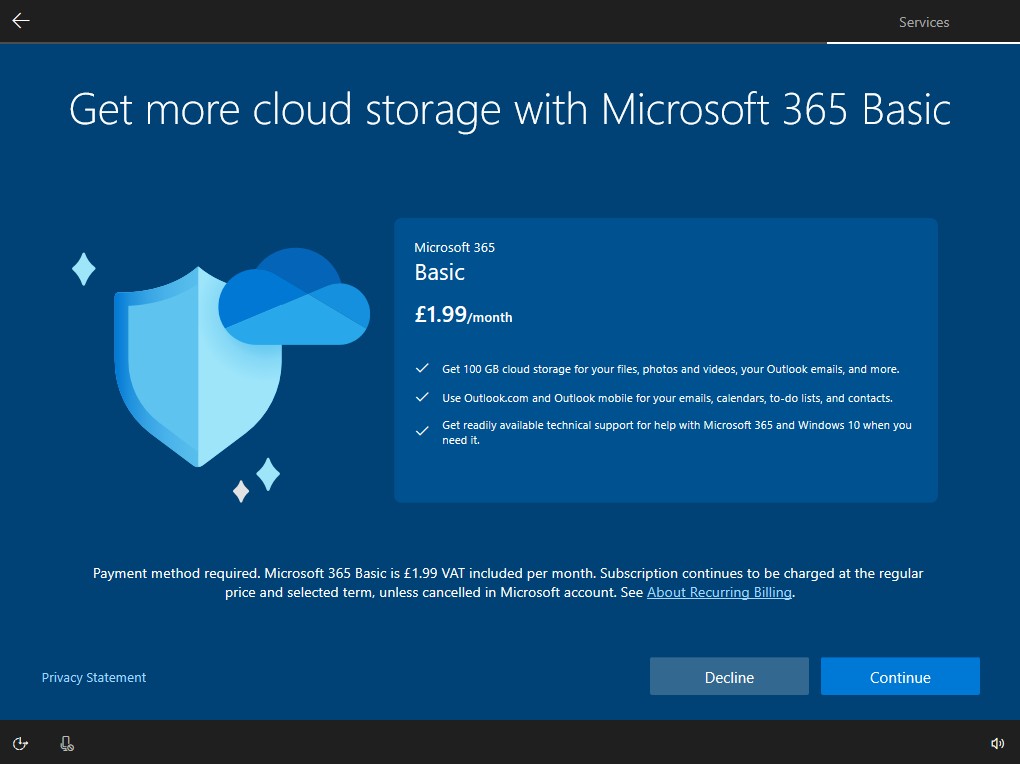
Privacy and Service Settings
Carefully review the privacy and service options. Turn off the ones you don't want.
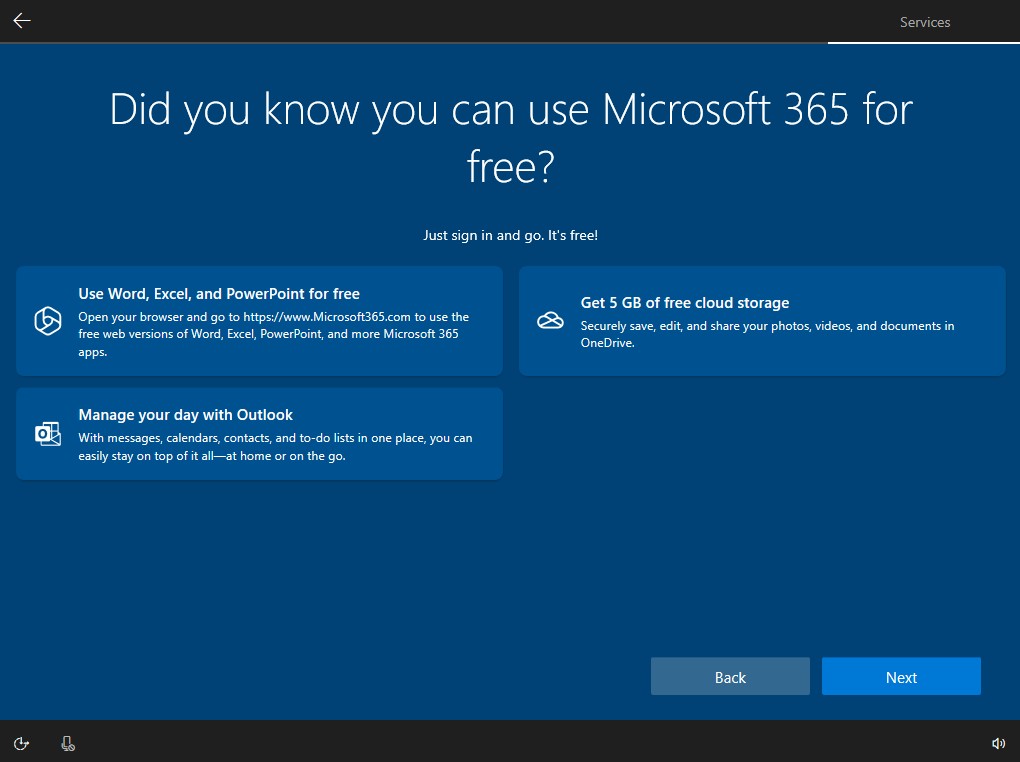
Privacy and Service Settings
Carefully review the privacy and service options. Turn off the ones you don't want.
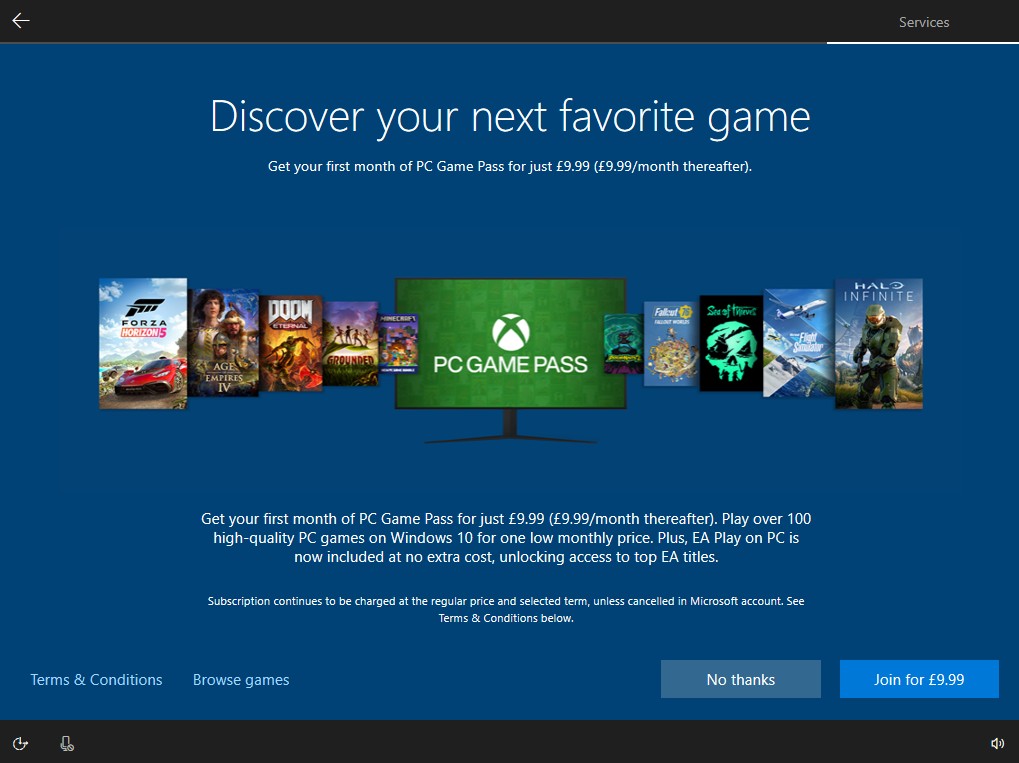
Privacy and Service Settings
Carefully review the privacy and service options. Turn off the ones you don't want.
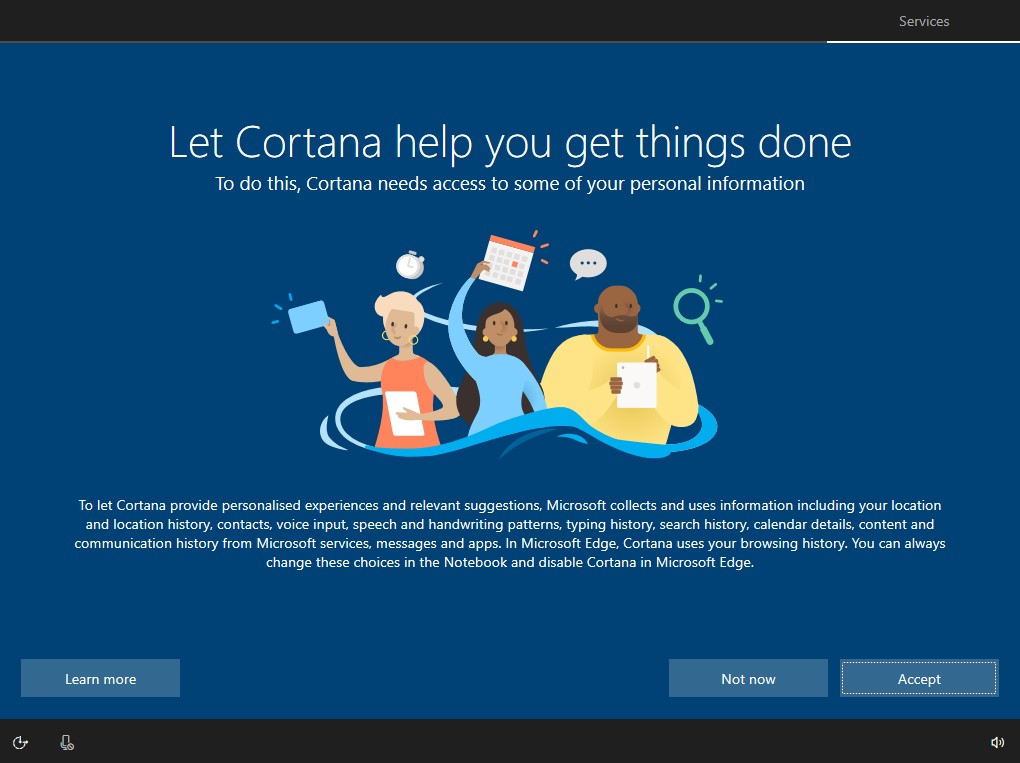
Operating System Loading
Wait patiently for everything to finish preparing for optimal performance.
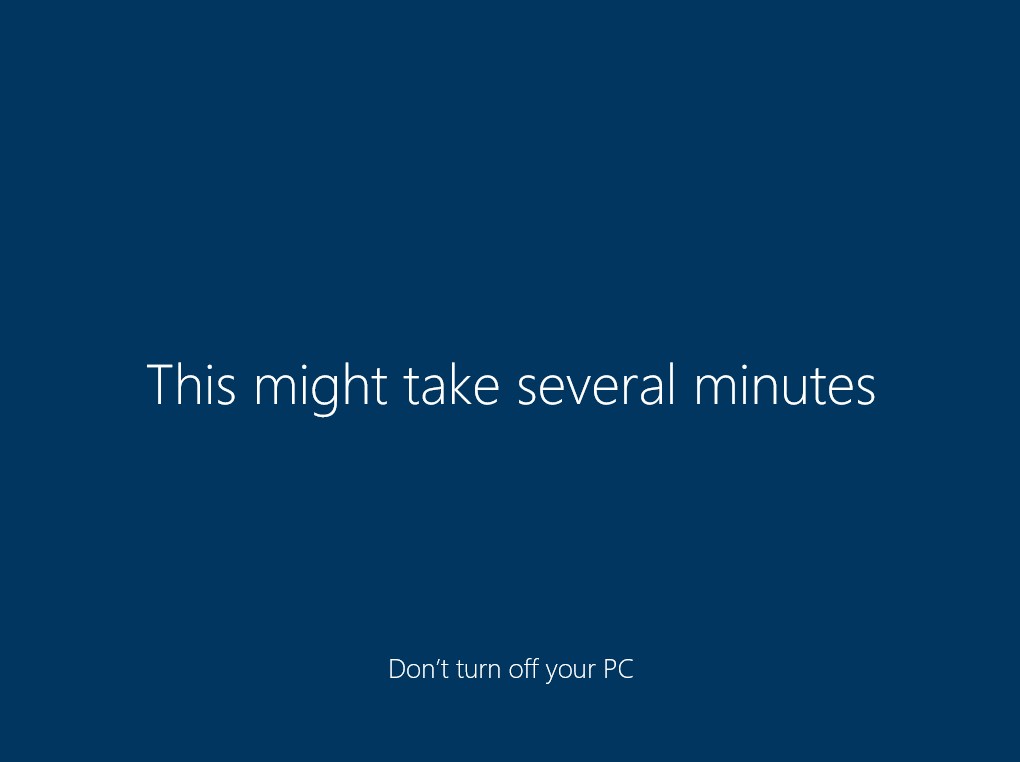
Windows 10 Desktop
Congratulations! You are now on the 64-bit Windows 10 desktop. You can now enjoy your Windows 10 or customize it by installing applications, changing settings, and adjusting the appearance.
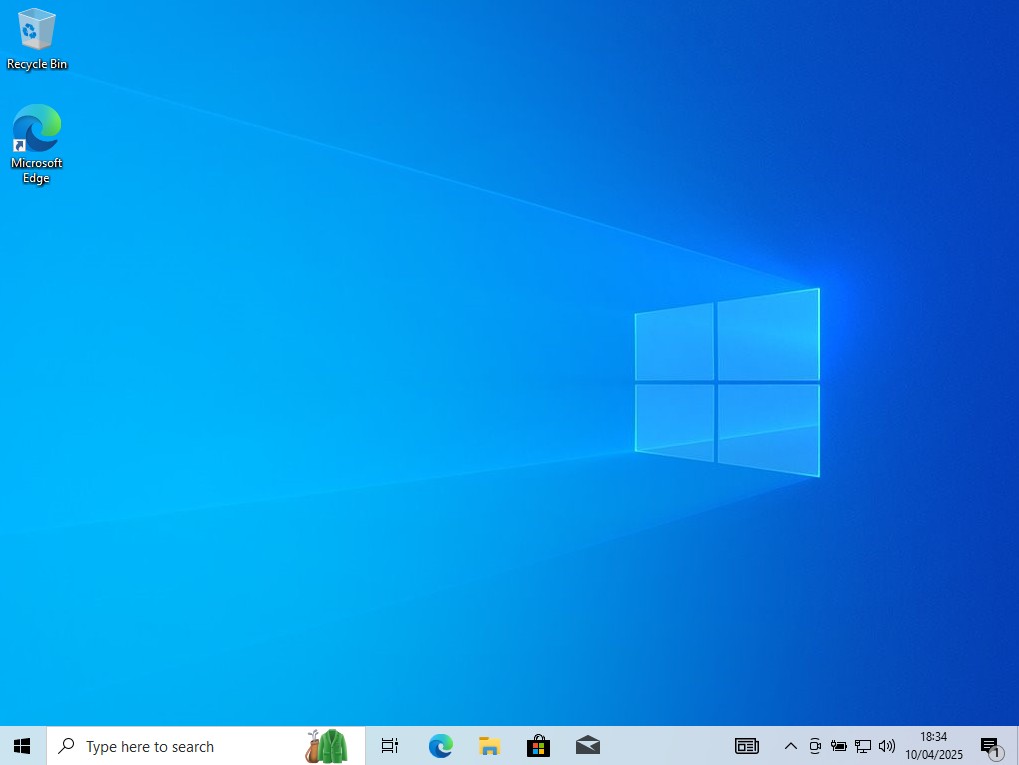
After installing Windows 10, consider installing an antivirus to protect your system, setting up a backup solution (such as File History or OneDrive), and customizing the Start menu to your liking. You can also disable unnecessary startup items to improve performance from the Task Manager.